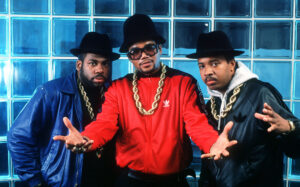It can be a little bit embarrassing admitting that you are a Country music fan when you’re a middle-class journalist living in London. It carries a certain stigma: “Isn’t that just music for rednecks?” someone asked me recently, somewhat baffled. A similar prejudice has accompanied the explosive success of Oliver Anthony and his track “Rich Men North of Richmond”.
With its attacks on both the political elite and the idle poor, Anthony’s “Rich Men” has proved uniquely conflicting for today’s political class, both a provincial cry against the urban elite and a working-class rebel yell, raging against poverty wages. Despite its attacks on corporate exploitation, it has quickly been adopted as a conservative anthem, while many on the Left have found it difficult to support its attacks on welfare and less-than-subtle allusions to paedophile conspiracy theories.
And so we’re told we shouldn’t take Anthony seriously. To sympathise with his lament about modern life is little more than “liberal genuflecting to astroturf roots politics” the process by which Right-wing conservatives create the impression of a conservative grassroots fightback, when it is actually a carefully cultivated attempt to preserve the status quo.
There is, of course, some truth in the Left’s criticism of “Rich Men” and, indeed, the general perception of country music itself. Oliver does indeed “punch down”, as Billy Bragg wrote in The Guardian, taking aim at what we might once have called the undeserving poor. But why shouldn’t he, if that’s his opinion — he’s certainly not the only one to hold it. Country music is a strange, conflicting and deeply American phenomenon, somehow both anti-elitist and conservative, backward and modern. For those of us here in Europe, it also manages to be both instantly understandable and completely foreign at the same time.
And herein lies its appeal.
Indeed, its very foreignness was what first got me into Country. My wife and I were at The Calgary Stampede, a mad jamboree of rodeo, fried food, fairground rides and live music when we first began to take note. While we didn’t really pay much attention to the music at the rodeo — a festival called Nashville North — as we headed out of the city on our way west to Vancouver, we found a “Country” playlist and began to listen. At first, we were doing so almost ironically, enjoying the songs for their corny Americana. This was redneck music and we were European city folk travelling towards the Pacific.
One of the first songs that came on in our playlist was “My Girl” by Dylan Scott. “Man, her eyes really drive me crazy,” he sings in his deep, country drawl. “You should see her smile when she holds a baby.” My wife and I could not stop laughing every time we heard that line. Or to Luke Bryan’s “Most People Are Good”: “I believe most people are good and most Mamas oughta qualify for sainthood.” Can you imagine Liam Gallagher singing that line? We played these songs on repeat as we climbed over the Rockies on the road west — like drinking ouzo in Mykonos, an affectation.
And then something happened: we began discovering Country songs that were completely different; songs with hard, sad lyrics sung by raw, gravelly voices. Songs like “Rich Men”.
At first, these were still on the pop side: Morgan Wallen’s “Whiskey Glasses”, say. “Poor me… pour me another drink, cause I don’t wanna feel a thing.” Not quite so corny. Or Scotty McCreery’s “Five More Minutes”, pleading for a little more time with his grandfather. “At 86 my grandpa said, ‘There’s angels in the room’ / All the family gathered ’round, knew the time was comin’ soon; With so much left to say I prayed / Lord, I ain’t finished / Just give us five more minutes.” The words might be all-American, but the feeling is universal. In retrospect, though, these Country songs were just gateway drugs to the hard stuff.
In Ken Burns’s extraordinary documentary, Country Music, he talks of a “music about people who thought their stories were not being told”. The more I learned about the genre, the more this truth revealed itself — the connecting thread from Hank Williams to Oliver Anthony, the music of a down-at-heel people sharing their stories.
We are introduced to the early founders of the music, the hillbillies of Appalachia, before being taken through all of its various iterations along the way. A young Dolly Parton tells the story of a pregnant girl abandoned by her lover who kills herself on the bridge where they met; singing of another girl of her creation forced to endure a stillbirth alone, abandoned by her family. Or take Loretta Lynn’s 1975 declaration of female liberation in “The Pill”: “You wined me and dined me when I was your girl, promised if I’d be your wife, you’d show me the world / But all I’ve seen of this old world / Is a bed and a doctor bill / I’m tearin’ down your brooder house / ’Cause now I’ve got the pill.” These are not the songs of a simple band of reactionary rednecks looking to rebuild a lost world. They are the songs of ordinary Americans about ordinary American life, often shockingly modern and even progressive. As Lynn explains in the documentary: “The songs were just life.”
From Townes Van Zandt’s “Pancho and Lefty” to Reba McEntyres’s “The Night the Lights Went Out in Georgia” and Bobby Gentry’s “Fancy”, Country music is tragic storytelling made raw — a kind of hillbilly opera in one act; a fully worked out story from start to finish. In “Fancy”, for example, Gentry tells the story of a young girl from “poor white trash” encouraged into prostitution by her dying mother to escape poverty. “We didn’t have money for food or rent / To say the least, we were hard pressed / Then Mama spent every last penny we had / To buy me a dancin’ dress.” Eventually Fancy escapes after meeting a “benevolent man”, who introduces her to “a king, a congressman and an occasional aristocrat”.
Perhaps unsurprisingly, the songs that move me today are those that connect with my new feelings as a middle-aged parent — Rodney Crowell’s reflection on mortality, “It Ain’t Over Yet”, or Tanya Tucker’s take on “The House That Built Me”, released in 2019, telling the story of an older woman who feels lost after her children leave home. There are plenty of odes to fatherhood, too, which similarly pull at the heartstrings: “A Father’s Love (The Only Way He Knew)”, by Bucky Covington; Reba McEntire’s “The Greatest Man I Never Knew”; or even “She’s In Love With The Boy”, by Trisha Yearwood.
Oliver Anthony, then, is not new. He fits easily into Country’s long history, singing about ordinary life and ordinary feelings. Take a look at Anthony’s other songs. “Now some people write songs on livin’ just right,” he sings in “I’ve Got to Get Sober”. “But I write mine on just getting by.” This is what Country music has always been. In Tanya Tucker’s “Two Sparrows in a Hurricane”, she sings: “There’s a baby crying and one more on the way / There’s a wolf at the door / With a big stack of bills they can’t pay.” Or take Anthony’s “I Want to go Home”: “Seven generations farming the ground / Grandson sells it to a man from out of town / Two weeks later, the trees go down / Only got concrete growing around.” Again, this is both deep Americana and universal. It could be the lament of the Dutch Farmer Citizen Movement — or Joni Mitchell’s “Big Yellow Taxi”: “They paved paradise, put up a parking lot.” Anthony is singing about the things people always worry about, only in a contemporary manner: “an old soul in a new world”, as he puts it.
His success, then, is surely down to the way he so obviously reflects the real world — he is a mirror of the zeitgeist, not a creator of it. “I’ve been selling my soul, working all day,” he sings with evident emotion. “Overtime hours for bullshit pay.” In both the United States and Britain this is just plainly true. Since 1979, the top 1% in the US have seen their wages grow by 138%, while wages for the bottom 90% grew by just 15%. In Britain, living standards have been stagnant since 2007. Why shouldn’t people rage against these failing systems?
Like Country itself, Anthony is both à la mode and old-fashioned, conservative and anti-establishment, provincial and universal. He has very obviously grown out of the soil that gave us Trump and Brexit, and now RFK Jr. What makes his music doubly powerful is the fact that much of today’s Country is as corporate and safe as everything else, churning out endless cheesy songs about love and small-town life that often meld into pop and rock, only with twangier sounds and romantic deviations into faith and family.
In early Country music, songwriters gazed deep into the heartbreaking reality of life as it was back then, singing about everything from dead babies to dead dogs. In Johnny Cash’s recording of “The Engineer’s Dying Child”, for example, he sings about a railwayman whose child is sick but he has to go to work. Before he sets off, he tells his wife: “Just hang a light when I pass tonight, Hang it so it can be seen / If the baby’s dead, then show the red / If it’s better, then show the green.”
Today, Country music is far more sanitised, in large part because life itself is more sanitised — or, in other words, better. Our lives today tend not to be touched by quite as much tragedy. Child mortality is rare, so too deadly disease. Even our pets live longer. Very few of us face such an unimaginable scene as the railway man in Cash’s song. And the result is that Country music has become more generic. “Modern country music speaks less of such desperate loss and has become shiny and rich and rather shallow as a result,” Cash’s daughter Rosanne reflects in her memoir, Composed. “The dead have all but disappeared, though they do occasionally surface. The family has likewise faded in country, as sexual heat has begun to obsess most singers and songwriters, just as it does in pop music.”
And yet, there are more modern emotions than heartbreak and sexual attraction. Tragedy and pain and poverty still exist: drug abuse, family breakdown, death and disease. And so does the sense of political and economic powerlessness, as Anthony’s “Rich Men” proves. Country music is born to express this frustration: “Music about people who thought their stories were not being told,” as Burns put it.
To me, Anthony is proof of the continued vibrancy and diversity of American culture, something that seems lacking in Britain today. We have many of the same conditions as the US: regional poverty, terrible wages, cultural dislocation. Compared to America — and even those parts of America where Anthony lives — Britain is poorer with worse wages. We have millions of people living far from the capital who feel that their instincts and beliefs are ignored by those in positions of power. Where is the music that tells their story, that reflects their rage?
We have Oasis and Blur, Pulp and the Manic Street Preachers, each of whom touch on the ordinary lives of ordinary people in their stories, but not quite in the same way. In Oasis’s “Cigarettes and Alcohol”, there is a lament about modern life equivalent to Anthony’s: “Is it worth the aggravation / To find yourself a job when there’s nothing worth working for? / It’s a crazy situation / But all I need are cigarettes and alcohol.” In Jake Bugg’s “Trouble Town”, he’s stuck in his home town where “all you’ve got’s your benefits; And you’re barely scraping by”. There are plenty of songs which could be Country ballads: The Streets’ “Dry Your Eyes”, even The Spice Girls’ “Mama”.
There is anger in modern British music too of course. Casting around for examples to disprove my lament about the lack of Oliver Anthony-style rage in Britain, alternatives were offered — from bands like IDLES and Sleaford Mods to Stormzy. In each case it’s reasonable to argue that they meet Burns’s definition of Country music, telling the stories of those who do not otherwise get their stories told. And yet, taken together, they still do not amount to a genre of their own. The rage in modern British music is more diverse and scattered — and often metropolitan. Grime, for example, is still a predominantly London genre, not the music of provincial “left behind”. Where is the music that connects the Red Wall and Great Yarmouth, Morecambe and Boston — the places that helped give us Brexit and Boris (and Blair, of course)?
The truth is we do not have the same vibrant, distinctive tradition of provincial British music as a genre of its own. In part, I think, this represents the total domination of London in our national life as well as our own cultural norms. In Britain, you don’t revere your town, you mock it (even if that is really a particularly British form of self-effacing affection); you don’t wear your heart on your sleeve, share your pain, or give away your feelings. You don’t rage against life; you quietly grumble.
But also, I don’t think you rage against London — you move there. In Britain, we don’t have alternative centres of commerce or culture. London is our New York, Washington, Los Angeles and Nashville. If you make it somewhere else, you move to London — or, indeed, the US. The Arctic Monkeys swapped Sheffield for California, the Gallaghers traded Manchester for London. In Bugg’s “Trouble Town”, he is “stuck in speed bump city / Where the only thing that’s pretty / Is the thought of getting out”.
The irony, of course, is that we are so dominated by the rich men of the South East that we’re not even able to produce a vibrant cultural alternative. Instead of producing our own Country music, we import it. Today, Americana seems to be more popular than ever. The annual festival of all things Country in London — Country to Country — is regularly sold out. The biggest Country stars now regularly pass through London: Luke Combs, Shania Twain, Ashley McBryde, Maren Morris. There is clearly an appetite for what Country is selling, even if what it is selling is distinctively American.
But here’s the problem: rather than mock Oliver Anthony and the redneck America he represents, then, we should worry about why our docile culture so dominated by one all-encompassing city does not produce enough Oliver Anthonys of our own. We have bailed out the banks, imposed austerity, left large swathes of the country impoverished and imposed a trade border within our own country; corporate profits have gone up while living standards have gone down, and the state seems barely capable of doing anything but the most basic of public service provision. The country is a mess. We have channelled our fury about the situation into political rebellion, but what about cultural rebellion? We deserve more populist fury than we’ve got. Where is it?
Disclaimer
Some of the posts we share are controversial and we do not necessarily agree with them in the whole extend. Sometimes we agree with the content or part of it but we do not agree with the narration or language. Nevertheless we find them somehow interesting, valuable and/or informative or we share them, because we strongly believe in freedom of speech, free press and journalism. We strongly encourage you to have a critical approach to all the content, do your own research and analysis to build your own opinion.
We would be glad to have your feedback.
Source: UnHerd Read the original article here: https://unherd.com/






